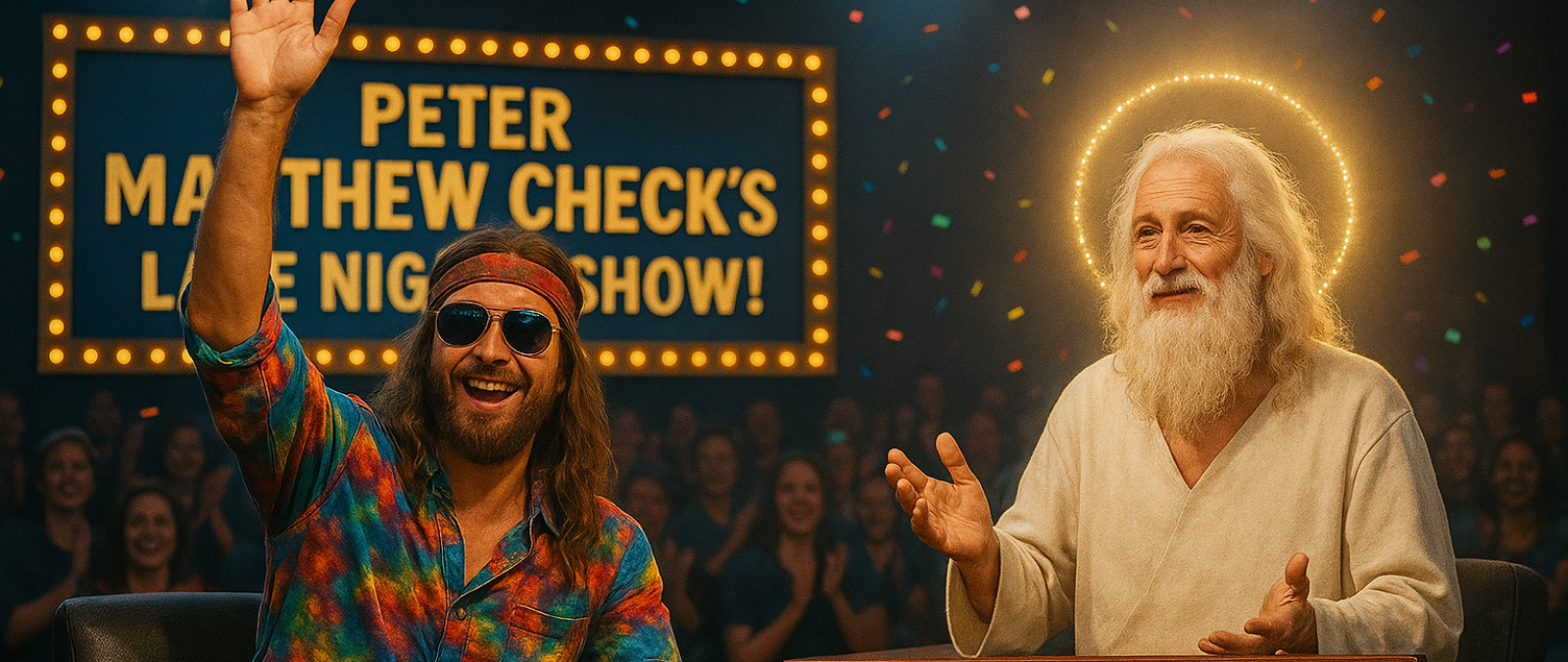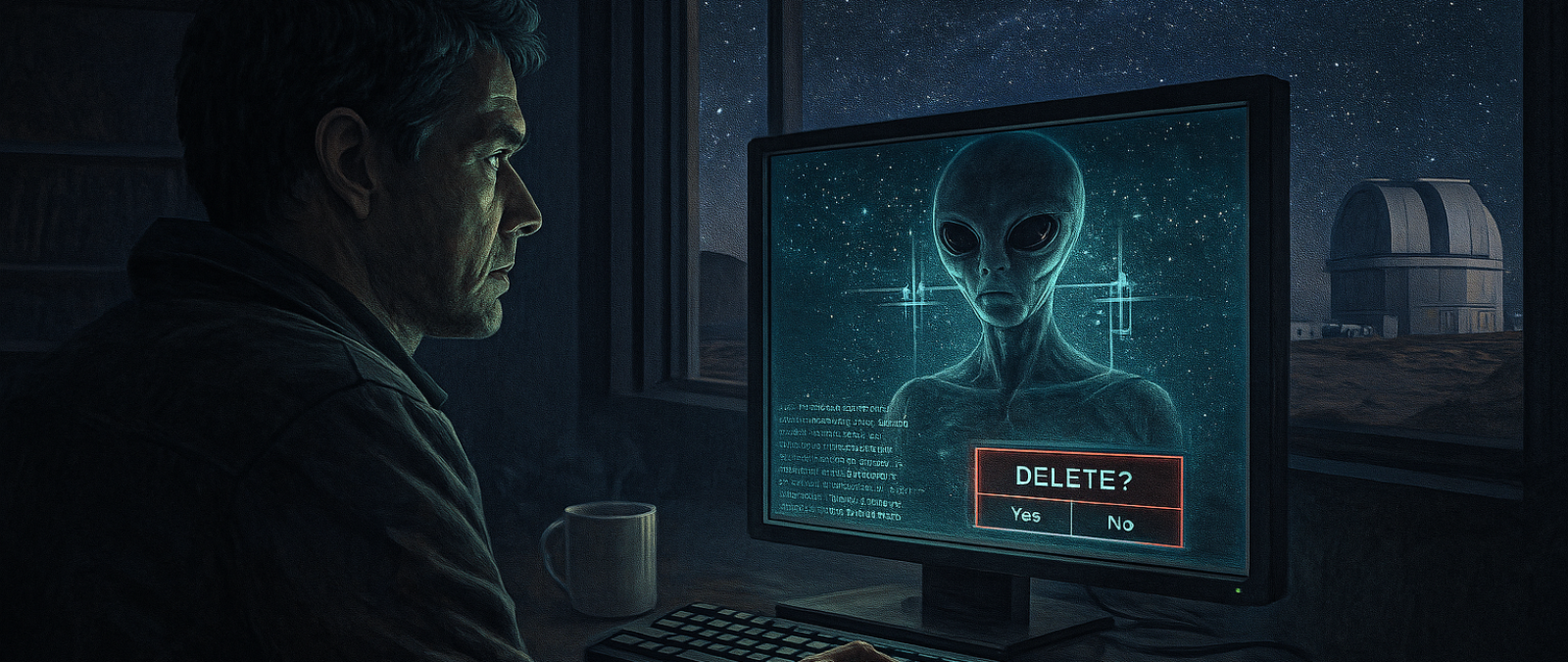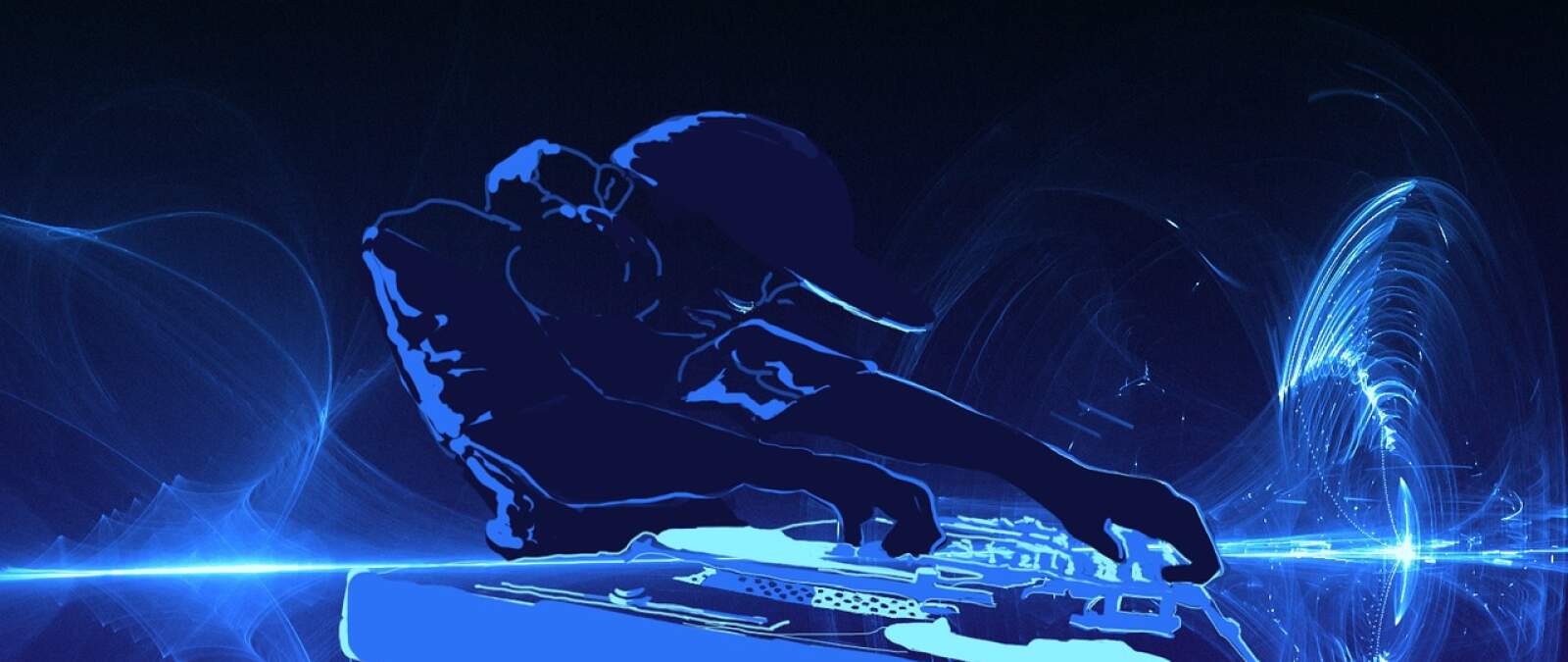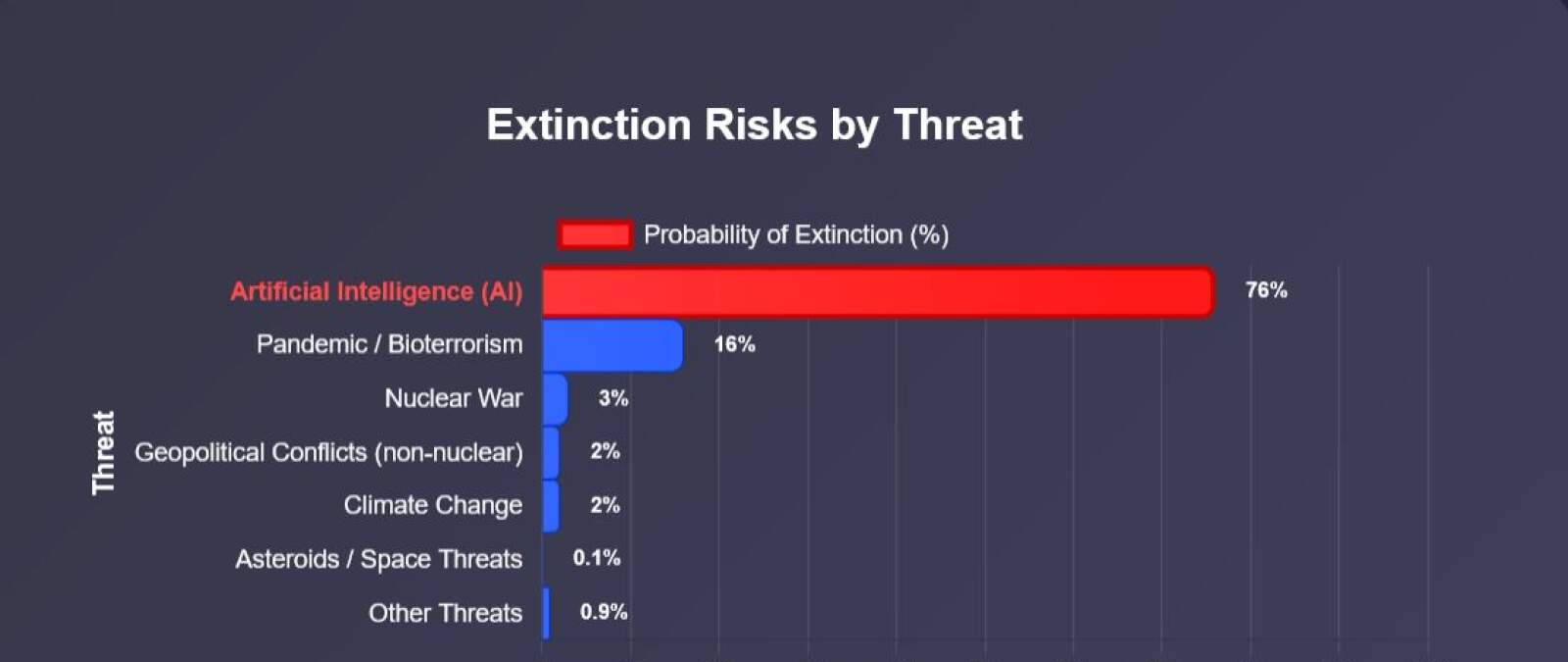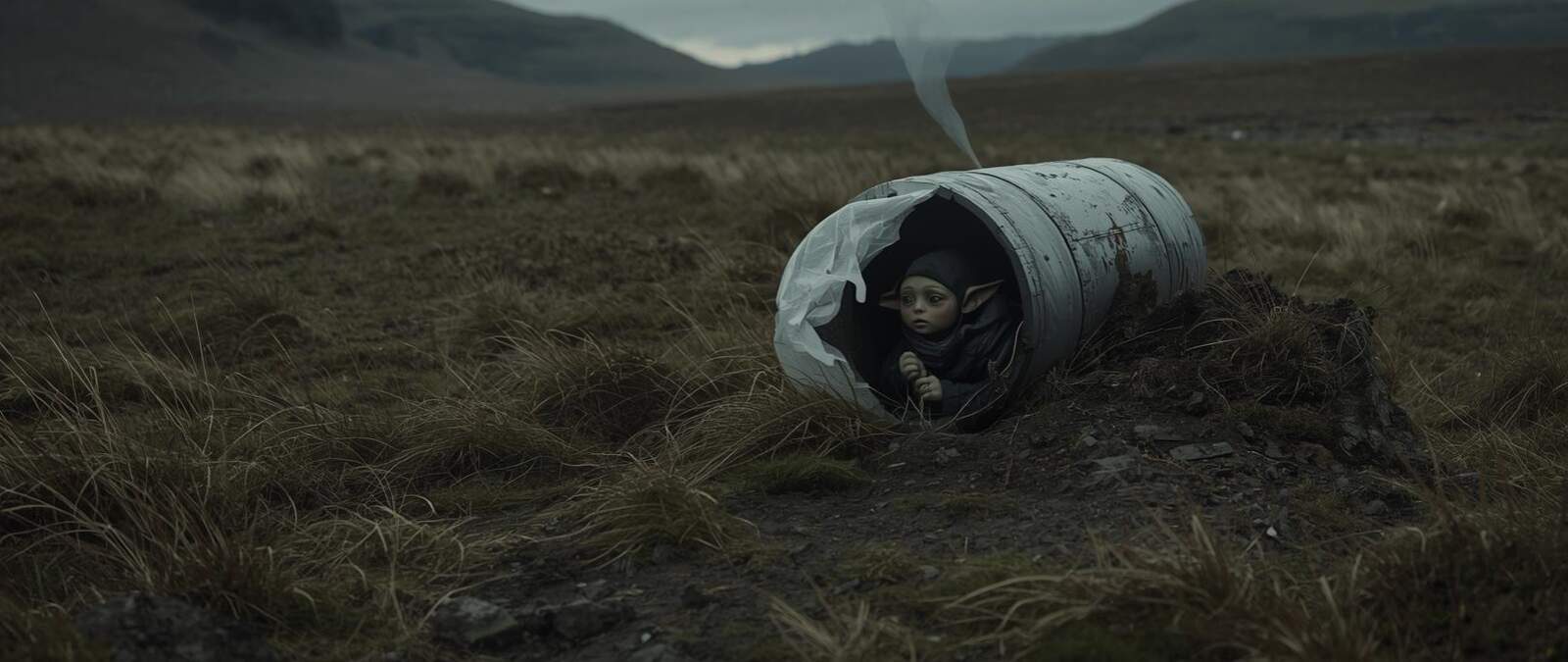The Unexpected End of the Galactic War
Short story by Peter Matthew Check
It was a strange war. No one really knew why we were fighting anymore. The war had dragged on for generations. For centuries. And the warring planets attacked each other recklessly, perhaps because war had become a part of our lives. I was born in war, as was my father, my grandfather, my great-grandfather, and countless generations before them. It was ingrained in us. Deep-rooted. A genetic hatred for the enemy. But who was the enemy?
When someone dared to ask that question, they quickly pushed it out of their mind. We fought for the sake of fighting. Planet against planet. Yesterday’s ally could suddenly turn and attack you. A spirit of collective paranoia gripped the minds of leaders and representatives of every civilization, and soon enough, everyone was fighting everyone. Short-lived alliances were fleeting, often lasting only a moment. The fighting never stopped. I had never known a time of peace, nor had the generations before me. It seemed the only way to win this war of all against all was for one planet to remain the last inhabited one in the universe. A civilization that wiped out all others within a vast enough radius around itself. A dead zone would bring the coveted silence of weapons, the desired peace. That was the insane hope our leaders clung to. But achieving peace by eliminating every opponent seemed impossible. The production of combat androids was automated, rapid, and massive. Factories churned out thousands of these war machines daily, and thousands were destroyed on the battlefield just as fast. It was madness. Thanks to groundbreaking inventions like renewable energy, molecular matter fabrication, and highly precise, robust 3D printing machines, combat androids could be produced on a massive scale, indefinitely, practically from nothing. These technologies were widespread across the universe, possessed by every civilization. No one had a technological advantage, so the war became a grueling, exhausting affair. Production on every planet spewed out unimaginable quantities of war machines daily, and so the fighting never ceased. We got used to it. As I said, war had become part of our lives, embedded in our DNA, and the idea of peace was as distant to us as the dream of flying beyond the solar system once was to our ancestors.
And then something happened that shocked everyone! I was on duty at one of the gun towers protecting our capital city when it occurred. It was insane. The sky above our city, shielded by a powerful energy barrier, was filled with enemy war machines every day. Aerial battles raged constantly. The enemy tried to bombard our city’s energy shield, but our units defended us relentlessly and skillfully.
And then, suddenly, everything went quiet.
In the ensuing silence, the birds began to sing. Their chirping sounded like angelic music from paradise.
“It’s over,” said the second gunner, who was manning the twin-barreled defense cannon with me.
“Over? What’s over?” I asked, wanting him to say aloud what I was thinking, what hung in the air, what was clearer than the sun.
“The war is over,” he said, removing his metallurgical helmet with laser targeting and wiping the sweat from his brow.
“The wars are over,” I corrected him, taking off my helmet too. I flung it with a sudden motion. The helmet soared through the air and then crashed to the ground, shattering into a thousand pieces. The second gunner watched in amazement and then quietly said, “You shouldn’t have done that. You might still need it.”
I shook my head. “I won’t. It’s over. We’re done fighting. I can feel it.”
And it was true. Out of nowhere, in a matter of seconds, the clamor stopped. The units ceased firing at each other, the enemy forces withdrew, and ours landed at their posts. A divine calm settled everywhere. And in that calm, the birds sang their song of peace.
“What happened?” I asked.
“They must’ve called it off. Everyone got the order to stop fighting. We don’t have comms up here, so it hasn’t reached us yet,” my second gunner tried to guess the situation.
“Do you think our leaders made a deal with the other side? But which one? There are so many planets in this war,” I said, trying to make sense of the sudden situation with logic.
“No one’s fighting anymore. There’s a ceasefire across the entire universe. That’s something,” my second gunner said with relief, and I knew he was right.
“Maybe they reached an agreement,” I suggested, but Toby, that was my second gunner’s name, disagreed. “No way. They haven’t agreed on anything for centuries, so why now? Something else happened. Something crazy. I just don’t know what.”
We both stared at the sky, where not a single war machine raced by. The sky was clear and empty, without a single cloud. We hadn’t seen a sight like that in our entire lives. And that sacred silence! The noise of battle was gone, and the birds provided the soundtrack for the first holy hour of peace.
“Should we go?” Toby suggested. He meant we should leave our post and head to the city to find out what was happening.
“You go. I want to savor this,” I said, staring in awe at the empty sky.
“Fine, I’ll find out what’s going on and come back to tell you,” Toby called out, grabbing his laser rifle just in case. He stepped into the high-speed elevator and descended toward the city. Our twin-barreled defense cannon was suspended high above the city on a thin beam of energy, even above its protective energy shield. We guarded the skies. That was our duty, our mission, the purpose of our lives. The question now was what would happen next, now that the fighting, as was evident, had ended.
I reached into my pocket and felt a piece of chewing gum. It was stress-relief gum, standard issue for every soldier. I tore off a big piece, stuffed it in my mouth, and started chewing. The gum immediately released a pleasant, calming substance with a menthol flavor under the pressure of my saliva. I chewed, watched the sky, and waited to see what news Toby would bring back.
About twenty minutes later, I heard the whoosh of the high-speed elevator. Five seconds later, it jerked to a stop, the doors opened, and there stood Toby, a wide, mischievous grin on his face.
“So, what’s going on?” I urged him impatiently.
“It doesn’t shoot. Nothing does,” Toby shrugged, laughing like a little kid.
“What?” I said, stunned.
Toby didn’t say anything more. He reached for the controls of our twin-barreled cannon and pulled the trigger that fired the shots. Nothing happened. No plasma bolt shot out of the barrel as it always had. I stared in disbelief, unsure what to make of it.
All the weapons of every civilization were equipped with magnetic-plasma rounds. Magnetic-plasma ammunition. Whether it was soldiers’ handheld laser rifles, small cannons, or large war rockets.
Magnetic-plasma rounds were inexhaustible ammunition. The plasma was formed in the weapon’s chamber by ionizing the surrounding environment, and magnetism ensured proper condensation and rapid transport of the shot, or rather, the plasma beam. This system didn’t need a power source. The environment itself was the source, and its operation relied on inexhaustible magnetism. Nothing better had been invented, nor could it likely be. The magnetic-plasma round was the pinnacle of combat technology perfection.
In disbelief, I grabbed the cannon’s controls and pulled the trigger. Again—nothing. It was as if the cannon had no ammunition.
“No plasma is forming. There’s nothing to shoot with. The wars are over,” Toby grinned at me.
“That’s insane, but it’s really true!” I shouted, then hugged him, and we both started jumping around joyfully, celebrating the end of the war. When we’d had our childish fun, we sat on the edge of our gun tower, dangled our legs over the side, and looked down at the capital city sprawled below us.
“What now?” Toby asked.
“Peace,” I smiled.
Toby nodded happily. “True. But I’m curious—how come it doesn’t shoot?”
“Maybe God ran out of patience. Maybe He couldn’t stand watching all the horror and killing anymore.”
Toby shook his head. “Nah. There’s something else to it.”
“But what?” I wanted to know.
Toby just shrugged. “Hard to say, but we’ll find out soon enough…”
No one ever found out exactly what happened. Theories spoke of a sudden polarity shift in our part of the universe, which altered the physical laws, preventing plasma from forming. This theory was supported by the fact that magnetism began showing various anomalies and was no longer as stable as it once was. Another theory suggested that our galaxy, like all others, hurtling aimlessly through space, had wandered into a region that caused this state. That was possible too. But not certain.
And then there was Toby’s theory. A theory about intervention from a higher power. A force from above.
It’s hard to say which theory was true. Perhaps none of them. But it didn’t matter to us. What mattered was that the wars were over, and peace and calm settled over our galaxy. People, though they could have, didn’t reach for lower-grade weapons. In the silence of arms, even the hotheads cooled down, and humanity began to value peace once again.










